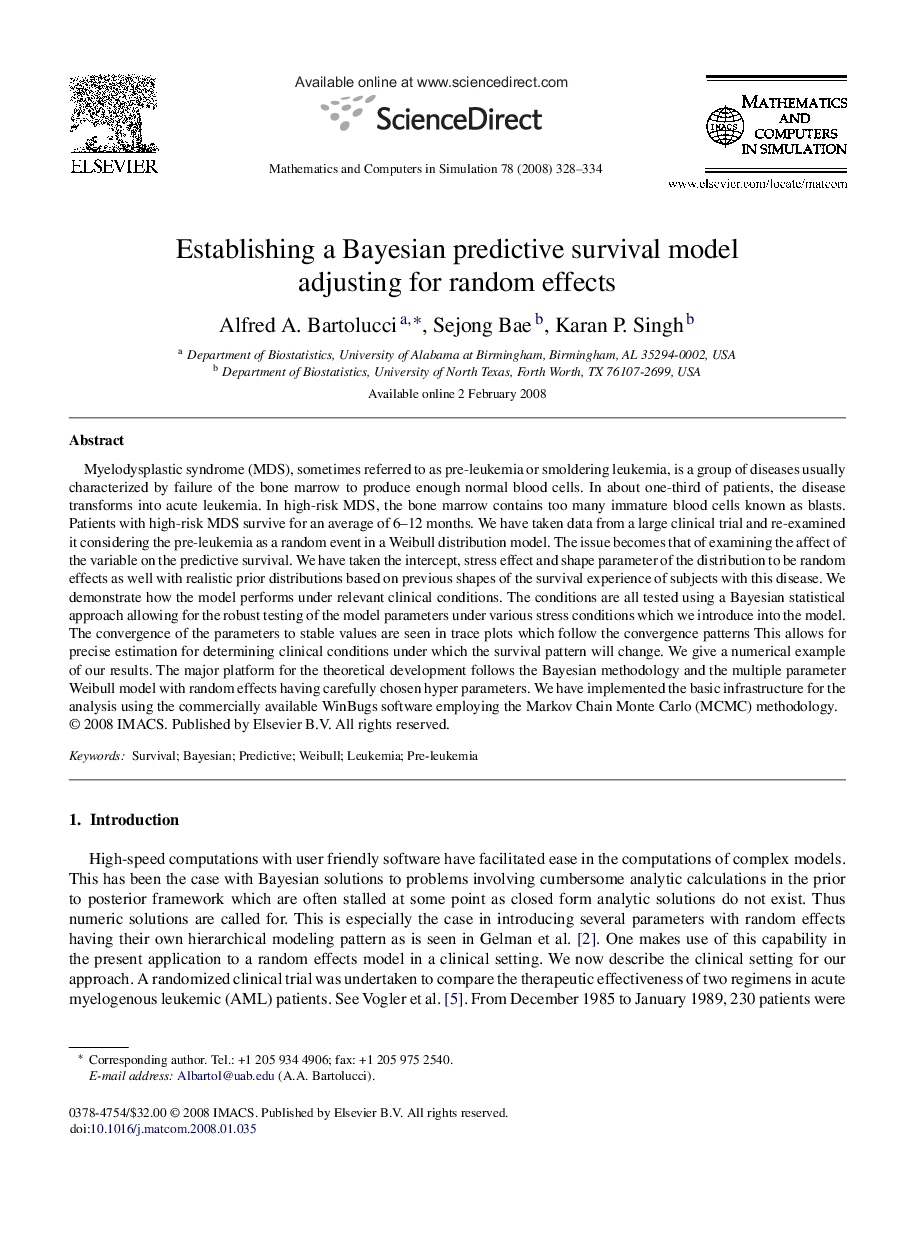| Article ID | Journal | Published Year | Pages | File Type |
|---|---|---|---|---|
| 1140292 | Mathematics and Computers in Simulation | 2008 | 7 Pages |
Abstract
Myelodysplastic syndrome (MDS), sometimes referred to as pre-leukemia or smoldering leukemia, is a group of diseases usually characterized by failure of the bone marrow to produce enough normal blood cells. In about one-third of patients, the disease transforms into acute leukemia. In high-risk MDS, the bone marrow contains too many immature blood cells known as blasts. Patients with high-risk MDS survive for an average of 6-12 months. We have taken data from a large clinical trial and re-examined it considering the pre-leukemia as a random event in a Weibull distribution model. The issue becomes that of examining the affect of the variable on the predictive survival. We have taken the intercept, stress effect and shape parameter of the distribution to be random effects as well with realistic prior distributions based on previous shapes of the survival experience of subjects with this disease. We demonstrate how the model performs under relevant clinical conditions. The conditions are all tested using a Bayesian statistical approach allowing for the robust testing of the model parameters under various stress conditions which we introduce into the model. The convergence of the parameters to stable values are seen in trace plots which follow the convergence patterns This allows for precise estimation for determining clinical conditions under which the survival pattern will change. We give a numerical example of our results. The major platform for the theoretical development follows the Bayesian methodology and the multiple parameter Weibull model with random effects having carefully chosen hyper parameters. We have implemented the basic infrastructure for the analysis using the commercially available WinBugs software employing the Markov Chain Monte Carlo (MCMC) methodology.
Related Topics
Physical Sciences and Engineering
Engineering
Control and Systems Engineering
Authors
Alfred A. Bartolucci, Sejong Bae, Karan P. Singh,
